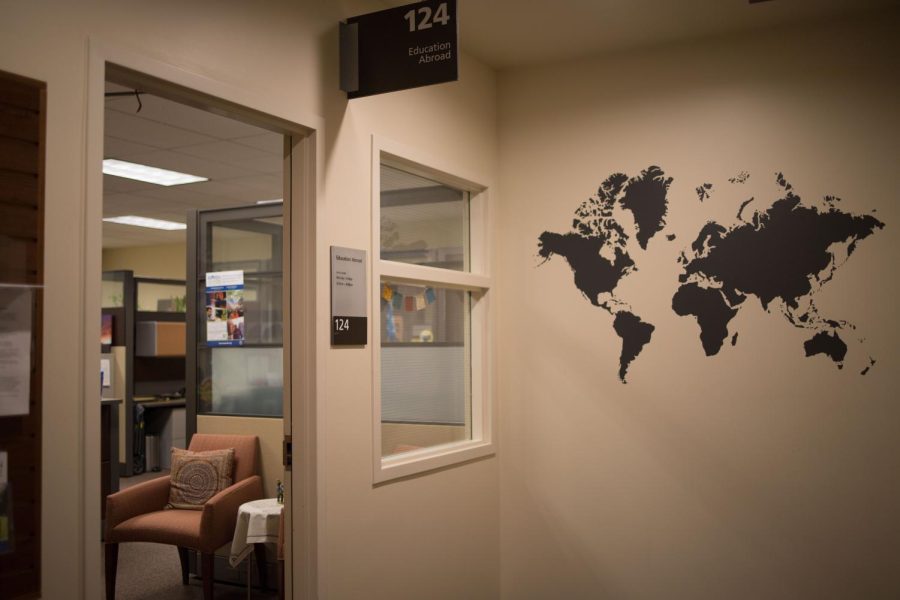The Return of Study Abroad: Pending National Restrictions
Office of Education Abroad and world map
While it wasn’t perfect, students still had the opportunity to learn and get involved during the COVID-19 pandemic. Classes, clubs and student organizations could all be completed online through Zoom. However, one aspect of the college experience remained out of reach for students: the study abroad experience.
There are still some obstacles students seeking to study abroad may face. Currently, if the U.S. Department of State indicates that a country is at a level three or four travel advisory, the student needs to submit a petition to the Director of Education Abroad that identifies why the study abroad trip would be particularly beneficial in that country.
Due to the global nature of the pandemic, many of the countries offered by Seattle University’s Study Abroad Department remain at level three.
Abby Dean, a third-year international studies major, recently had her petition approved after waiting for several years.
“Study abroad is one of the main reasons that I wanted to come to Seattle U,” Dean said. “Because of COVID-19, I had to submit a petition for my program, but it was just approved, meaning that I’m going to Jordan this spring semester.”
For language students, a study abroad isn’t solely an opportunity to experience a different culture, it’s also a highly practical experience where the student can hone their verbal and auditory skills with native speakers. This is an opportunity that students can’t experience without traveling out of the country.
The Director of the Study Abroad Department at Seattle U, Gina Lopardo, explained the effects of the pandemic on her department.
“This winter, students will be able to participate in sponsored exchange programs with our program providers,” Lopardo said. “Our role is to always keep our students’ safety in mind, so we have to look at a lot of different factors before approving a student to study abroad.”
Schuyler Dull, a third-year international studies and French double major, commented on how the pandemic affected her study abroad plans.
“It’s shortened my trip. It was supposed to be winter and spring quarter, but now it’s just spring quarter. For a lot of study abroad programs, you have to be your own advocate,” Dull said. “There is a Canvas page for students to use to learn about the programs, but you have to be proactive and start planning early.”
Students interested in studying abroad can check out the Education Abroad page. From there, students can explore the various programs, their dates and the costs of studying abroad. After finding a program that looks interesting, students should then check their eligibility for the program, which includes minimum GPA requirements as well as a conduct check.
Then, students apply for their program through this page. Students should also make an appointment with the Education Abroad Department’s on-campus office if they have any additional questions or concerns about the programs.



Jenn Chan
Nov 18, 2021 at 2:39 pm
Students interested in going abroad for next academic year should start planning now! Our application deadline is Feb 1st, there’s still plenty of time to enroll in the Global Engagement with Education Abroad Canvas course (which is a guide to get an understanding on how education abroad works at SU) and complete the required planning meeting with an Education Abroad Advisor, where we talk about your goals, recommend programs, and go in depth on financial planning. We’re here every step of the way and are your advocates as well!
Gina Lopardo
Nov 18, 2021 at 9:58 am
It is important to note that although one can explore various programs through the Education Abroad website, in order to be considered in the pipeline, students must contact our office and request to be added to the Canvas course “Education Abroad 101”. Students should also begin meeting with an Education Abroad advisor prior to completing an application through the link provided in this article in order to understand academic and financial implications of the programs. It is an involved process, but totally worth the effort! And the Education Abroad team supports students along the journey abroad. ~Gina Lopardo, Director, Education Abroad